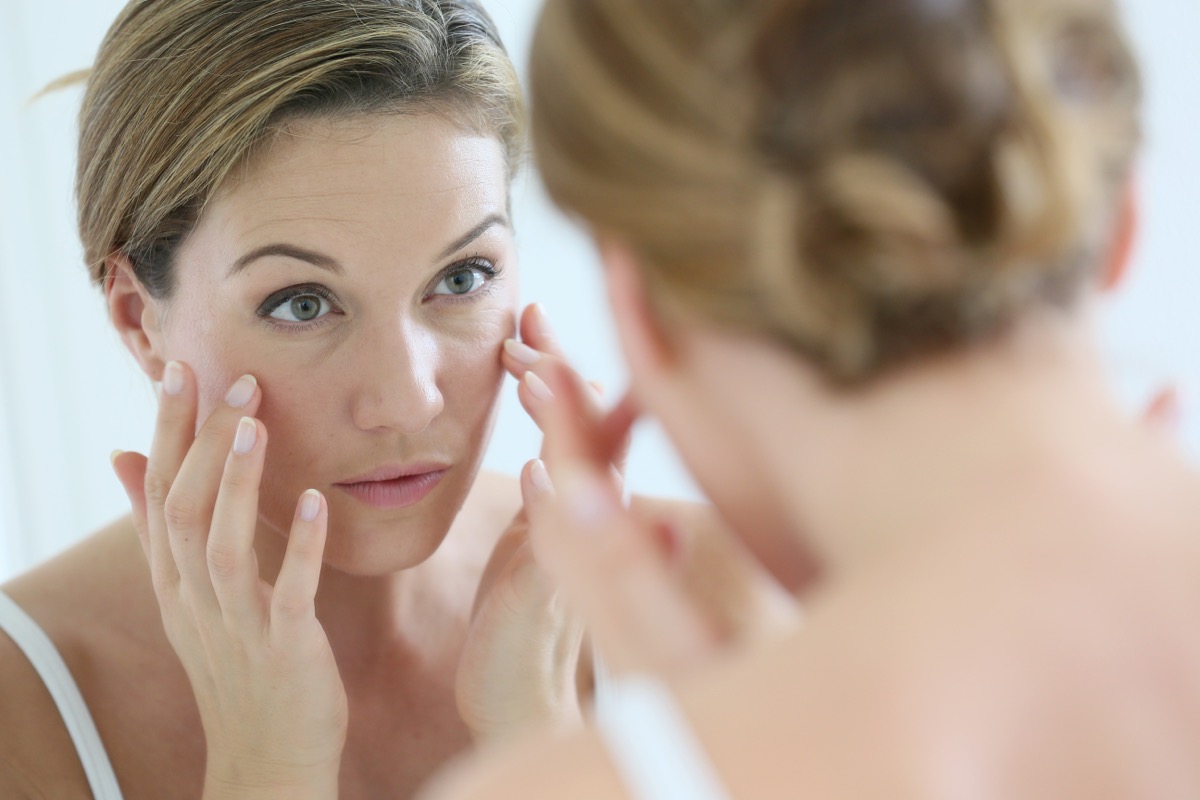For many turning 60 marks the beginning of big life changes like retirement plans, setting off on new adventures and spending more time with family and friends. Your 60s can be an exciting decade filled with creating new memories and opportunities to experience life to the fullest. But it also means a time when things start to change health wise.
Dr. Jacob Hascalovici MD, PhD, Clearing Chief Medical Officer tells us, "A lot happens as the body ages. We're used to regarding these changes as negative (and to be honest, not all of them are fun!) It's important to remember that although many changes can feel negative, there are positive aspects to aging as well, such as increased knowledge and self-awareness."
Everybody ages, but the trick is to do it well so you're healthy well into your golden years and embracing a positive outlook on aging can make you younger. "Although your chronological age (number of birthdays you've had) is a real reflection of your physical age, many people appear more youthful than their actual age because of their attitude," Dr. William Li, physician, scientist, president and medical director of the Angiogenesis Foundation, and author of the upcoming Eat to Beat Your Diet: Burn Fat, Heal Your Metabolism, and Live Longer tells us. "Having the energy to engage the world, continuously being curious and wanting to learn new things, staying physically and mentally active, and having strong social bonds with family and friends are all hallmarks of coming across as being youthful, regardless of your age." Read on—and to ensure your health and the health of others, don't miss these Sure Signs You've Already Had COVID.
Dr. Hascalovici says, "As the physical body ages though, muscles may weaken, bones may get more brittle, eyesight and hearing may decline, the skin might sag or get drier, joints may feel stiffer, you may be constipated more, and you may feel less flexible or less "sharp," among other things. Your concentration and memory may waver from time to time (although they may not); you may notice shifts in your emotions, attitudes, and how you handle stress. These changes are not absolutely inevitable – people age differently depending on their lifestyle habits, attitudes, and genes, among other things. Just know there is a lot you can do to age well."
Trista Best, MPH, RD, LD explains, "The body undergoes many mental and physical changes due to aging. The most common physical changes include a decrease in appetite, changes in the skin's health, increased risk for injury, potential malnutrition and dehydration, changes in taste and smell, vision and hearing difficulties, and many more. The most common mental changes are loss of short term memory efficiency, difficulty recalling names and places, decrease in concentration, and a harder time multitasking."
Lisa Richards, a nutritionist and author of the Candida Diet tells us, "Physically, those over the age of 60 should expect to begin experiencing changes in their skin. The skin will become drier, more fragile, age spots, and telangiectasias (small dilated blood vessels on the nose, chin, cheeks, and legs). There will also be a noticeable reduction in appetite and thirst, which can place them at risk for dehydration and nutrient deficiencies. Mentally, there is a change in short-term memory, but long-term memory is more stable."
Gail Saltz MD, Clinical Associate Professor of Psychiatry The New York Presbyterian Hospital and host of the "How Can I Help?" podcast from iHeartRadio shares, "In terms of mental health and brain health one can see some of the same mental health issues that you find under 60… clinical depression and Anxiety disorders. Dementia (Alzheimer's and other forms of dementia) also becomes an issue for some as age advances. Even in the 60s the development of early onset Alzheimer's can be present. Suicide also continues to be a cause of death for those over 60, for men over 75 the rate really climbs, for women 55-65 there is a small increase. But it is also fair to say that many people over 60 suffer no mental health issues and no cognitive decline."

Dr. Hascalovici says, "Bodies and minds can be so tough and resilient. There is only so much they can take though, so it becomes increasingly important to take care of them as we age. Though "being healthy" is often portrayed as a set of 'Don'ts," practicing good health is often a matter of swapping in more supportive, vibrant habits for ones that may be dragging you down. Bad habits can negatively affect your health. For example, smoking increases the risks of many chronic conditions and can make it harder for you to heal from any injuries. Being sedentary can lead to more problems with your heart health, to lost muscle mass, to weaker bones, to weight gain, and to mood disorders. Sugar can lead to poor moods, to diabetes, and to poor health overall."
Best says, "Bad health habits during early and mid-life have a significant impact on the health of those in their elder years. A poor diet throughout life puts the individual at a greater risk for chronic health conditions like heart disease, hypertension, obesity, and certain cancers. These risks are already high due to aging, but a poor diet increases their likelihood."
Richards explains, "How we treat our health, mentally and physically, will impact our quality and quantity of life for good or bad. Diet impacts health in a major way and can either increase the risk of chronic disease or decrease it. As we age we naturally become more at risk for chronic conditions and a diet high in saturated fat, refined carbohydrates, added sugar, and lacking nutrient dense foods will make it more likely that at least one chronic disease will occur."
Dr. Saltz reminds us, "Anything that worsens overall health, also affects brain health. Anything that harms cardiovascular health also harms brain health because the brain depends on the cardiovascular system to provide optimal blood supply. Issues like high blood pressure, hardening of arteries can lead to problems like multi-infarct dementia, strokes, and decreased cognitive capacity. Smoking affects arteries, lung capacity, blood pressure…all of which impact brain health. Exercise is directly linked to brain health and actually is one of the few things that seems to be helpful in staving off cognitive decline and specifically in boosting mood and in reducing stress. Reducing stress is important, because chronic high stress causes the body to produce high levels of cortisone and chronic cortisone elevation causes brain cell death…. Chronic stress also leads to anxiety disorders and depression. "

Dr. Hascalovici says, "It's never a bad time to embrace healthy lifestyle habits. The exact impact on health outcomes will depend on each person's unique lifestyle changes, commitment to those changes, and their health needs. If you recognize bad health habits and you're heading into your 60s and beyond, think about how you could taper off negative habits and put other, healthier ones in their place for long-term success."
Best explains, "Beginning a healthy lifestyle after turning 60 is not an unfruitful decision. Considering the life expectancy in the U.S. is mid to late 70s the individual still has around 15 years to continue improving their health and lifespan. Starting a healthy lifestyle at this age will allow the individual to also have a higher quality of life as they age."
Richards states, "No one is ever too late to begin following a healthier lifestyle. Making even small changes can add up over time and lead to better overall choices. Integrating healthy habits into your daily routine can improve bone health, strengthen muscles, and reduce the risk of injuries in the event of falls or accidents."
Dr. Saltz emphasizes, "Better late than never, the issues mentioned are cumulative, so the less negative impact the better. Brains are plastic, meaning new neurons and new neurocircuitry is being created even at advancing ages, so starting to treat your brain well can have a positive fee cut on your mood, stress level and cognitive abilities."

Sex shouldn't stop after 60! Dr. Saltz tells us, "Many people feel with age they can't enjoy a sexual life anymore and this negatively impacts their self image, their relationships and their pleasure and intimacy in life. But this is a myth. Your sex life might change, you may need to change exactly what you do and how you do it, but it can still be very personally enjoyable and wonderful for your relationship."
Carolyn Gorman, MD Obstetrics and Gynecology with the Mid-Atlantic Permanente Medical Group writes in an article about sex after 60, "Sex helps people feel better physically and emotionally. Men and women who are sexually active report feeling better about themselves. They feel more fit and more complete because sex is a part of their health that they haven't lost. Sex also has been connected with improved sleep, lower blood pressure, less stress and a healthier immune system. From an emotional aspect, sex is an important way to connect with your partner – and that connection is important at any stage of life."

According to Dr. Hascalovici, "Recent studies have highlighted a link between optimism and longevity. Optimism can train the mind to focus attention on more cheerful, supportive thought patterns and behaviors, which can reduce unhelpful rumination and lessen awareness and sensitivity to pain. Optimism can also play a role in feeling a greater sense of autonomy and help with stress management. The more effectively stress is managed, the less likely it is to contribute to chronic diseases. Experts who study happiness have shown that positivity and optimism can be both learned and practiced."
Northwestern School of Education and Social Policy explains, "Searching for a silver lining during a stressful situation can help decrease anxiety, particularly for those from lower socioeconomic backgrounds, new Northwestern University research suggests. The findings, published in the American Psychological Association journal Emotion, "highlight the important role a person's situation or environment plays in shaping how they deal with their emotions and how this matters for their health," said first author Emily Hittner, a life-span developmental researcher at Northwestern's School of Education and Social Policy."

According to Best, "Aging has an important to note impact on the skin. The body's ability to repair itself, specifically the epidermis, decreases dramatically. This is due to a reduction in growth factors and stem cells in the skin. It may also be caused or exacerbated by possible malnutrition, which is also a common concern, and conditions of the blood vessels."
A study published in the National Library of Medicine states, "Age-related differences in wound healing have been clearly documented. Although the elderly can heal most wounds, they have a slower healing process, and all phases of wound healing are affected. The inflammatory response is decreased or delayed, as is the proliferative response. Remodeling occurs, but to a lesser degree, and the collagen formed is qualitatively different. Diseases that affect wound healing are more prevalent in the elderly and have a greater adverse effect on healing than in young adults. Thus, particularly in the elderly, concomitant medical problems should be treated vigorously to allow for maximum healing. Recent trials of novel therapies to enhance wound healing suggest, however, that much can be done to improve the prognosis of elderly patients with risk factors known to adversely affect wound healing."

Best explains, "As the body ages the risk of malnutrition increases as well. There are many causes of this issue and just one can place someone at a serious risk. There is an increased need for protein and some micronutrients as the body ages and if dietary habits aren't changed to meet these needs malnutrition can occur. There are also changes in appetite that come along with aging due to lowered sense of taste and smell, hormonal changes that trigger hunger, and changes in the digestive system."
Richards adds, "Malnutrition occurs among the elderly population at alarming rates. This is primarily due to lack of access to food, poor detention, and inability to prepare nutrient rich foods. With age taste changes and some elderly individuals will lose appetite or desire for more nutrient dense foods due to taste or texture. This can be corrected by adding low or zero sodium flavor enhancers or seasonings. Caregivers and seniors themselves can overcome some of these hurdles by properly timing their medications and meals to avoid malabsorption of some nutrients, adding in supplements or consuming more of the nutrients likely to be malabsorbed, and cooking foods to a texture that is more easily eaten if poor detention exists."
The post I am a Doctor and Wish Everyone Over 60 Knew These Life-Saving Tips appeared first on Eat This Not That.
----------------
By: Heather Newgen
Title: I am a Doctor and Wish Everyone Over 60 Knew These Life-Saving Tips
Sourced From: www.eatthis.com/i-am-a-doctor-and-wish-everyone-over-60-knew-this/
Published Date: Mon, 28 Nov 2022 12:01:19 +0000
Read More
 HealthWellnessFitnessBeautyVideosPrivacy PolicyTerms And Conditions
HealthWellnessFitnessBeautyVideosPrivacy PolicyTerms And Conditions
